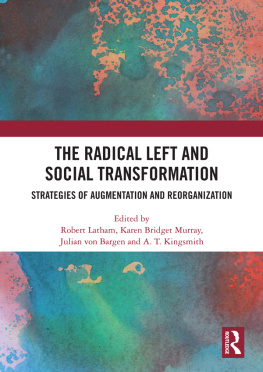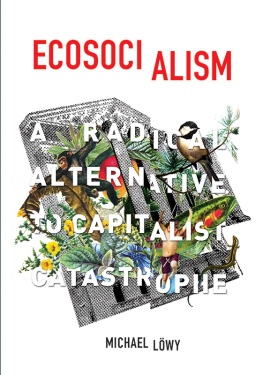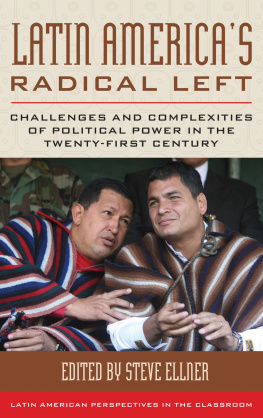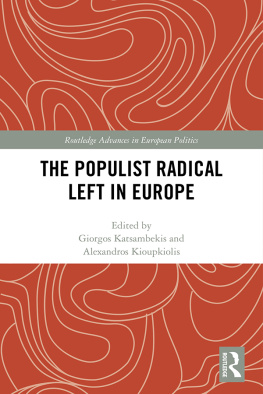The Radical Left and Social Transformation
This comprehensive collection draws upon and reengages with a long history of Marxian-anchored thought to analyze the potential for social transformation through a reinvigorated radical Left, all within the context of the ascendance of an increasingly ethnonationalist, patriarchal, and authoritarian far Right worldwide. The authors identify and reflect on strategies, tactics, and possibilities for analyzing and intervening in advanced capitalist societies by increasing and deepening popular participation and support on the far Left.
The chapters are framed in terms of conceptualizing the capitalist present, organizing the people and reimagining the radical Left. Together, in diverse ways that draw upon both qualitative and quantitative approaches, the authors evaluate the difficulties of augmentation across multiple planes, from the tension between migrants and citizen workers, to the uneasy relationship between sovereignty and class, to the contradictions operating across international versus domestic dynamics. How and why (if at all) should the radical Left reexamine its understanding of political consciousness, identity, ideology, and institutions, as they relate to Marxian analysis and various threads of critical theory? The authors suggest new approaches for understanding what the radical Left is up against and how problematic barriers might be torn down, thus disrupting unhelpful binaries such as state versus capital, national versus international, worker versus migrant, activist versus candidate, and freedom versus necessity.
This book was originally published as a special issue of the online journal Global Discourse.
Robert Latham teaches in the Politics Department at York University, Toronto, Canada. He has published widely on topics including political economy, digital activism, technologies of border surveillance, critical theories of sovereignty, transnational relations, migration, and radical political alternatives. He is the author of The Politics of Evasion: A Post-Globalization Dialogue Along the Edge of the State.
Karen Bridget Murray is an Associate Professor in the Politics Department at York University, Toronto, Canada. Her research evaluates and theorizes changing forms of modernity with respect to cities, as well as the governance of children and families. Her recent publications include articles in BC Studies, Canadian Journal of Political Science, Global Discourse, and Urban Geography.
Julian von Bargen is a Doctoral Candidate in the Politics Department at York University, Toronto, Canada. He employs ethnographic, participatory, and experimental methods to explore how states and societies are reassembling after the Internet. He has published on state surveillance and the information freedom movement.
A. T. Kingsmith teaches in the Politics Department at York University, Toronto, Canada. His research explores the intersections of digital surveillance, social anxiety, and production in urban space. He has published on affect theory, sensory studies, social movements, speculative philosophy, and mixed methodologies.
First published 2019
by Routledge
2 Park Square, Milton Park, Abingdon, Oxon, OX14 4RN, UK
and by Routledge
52 Vanderbilt Avenue, New York, NY 10017, USA
Routledge is an imprint of the Taylor & Francis Group, an informa business
2019 Taylor & Francis
All rights reserved. No part of this book may be reprinted or reproduced or utilised in any form or by any electronic, mechanical, or other means, now known or hereafter invented, including photocopying and recording, or in any information storage or retrieval system, without permission in writing from the publishers.
Trademark notice: Product or corporate names may be trademarks or registered trademarks, and are used only for identification and explanation without intent to infringe.
British Library Cataloguing-in-Publication Data
A catalogue record for this book is available from the British Library
ISBN13: 978-0-367-10989-9
Typeset in Myriad Pro
by codeMantra
Publishers Note
The publisher accepts responsibility for any inconsistencies that may have arisen during the conversion of this book from journal articles to book chapters, namely the possible inclusion of journal terminology.
Disclaimer
Every effort has been made to contact copyright holders for their permission to reprint material in this book. The publishers would be grateful to hear from any copyright holder who is not here acknowledged and will undertake to rectify any errors or omissions in future editions of this book.








